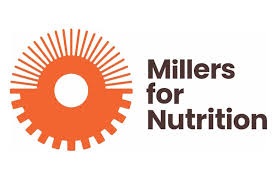
ADDIS ABABA–UNAIDS has commended Ethiopia in achieving progresses towards providing stigma-free HIV services while attributing the success to the strong commitment of the government.
In a press release published in line with the World AIDS Day,UNAIDS Ethiopia stated that Ethiopia’s government is working on offering HIV care that are stigma-free and grounded on human rights.
“We applaud Ethiopia’s progress and the government’s commitment to delivering stigma-free HIV services for people living with HIV, grounded in a human rights-based approach. This year’s World AIDS Day reminds us that human rights must be at the heart of the HIV response,” UNAIDS Ethiopia,Country Director Tina Boonto said.
“Protecting health starts with protecting rights. To end HIV as a public health threat by 2030, we must ensure everyone without exception can access HIV treatment and care services free from stigma and discrimination. The time to act is now,” Boonto stressed.
In the statement, AHF Ethiopia, Country Program Director Dr. Mengistu G/Michael also underlined the urgent need to enhance HIV prevention efforts, particularly for young women and adolescent girls between the ages of 15-24, who are at significant risk, with around 37 new HIV infections recorded each week.
Moreover, increased funding, support for community-led initiatives, and policies to combat stigma and discrimination are essential to expanding access to prevention and treatment, particularly for at-risk populations.“Together, these efforts are critical in the fight to end AIDS in Ethiopia and globally,” he said.
Dr. Mengistu emphasized that the need for increased accessibility of innovative HIV prevention tools like Dapivirine vaginal ring, Lenacapavir, and Cabotegravir injectable PrEP, along with promoting their use as a proven prevention method.
The press release underscored the need for continuous strategy updates in HIV prevention and control, aligning with evolving needs, and ensuring universal access to HIV treatment and care services by 2030.
Ethiopia faces HIV-related estimates and projections, with 91,248 out of 605,238 people lacking life-saving treatments.
Young women and girls aged 15-24 are four times more likely to acquire HIV than men, the release mentioned, suggesting that collaboration among key stakeholders, including governments, civil society, and international partners is necessary for successful HIV response, as demonstrated by Ethiopia’s community-level monitoring initiative.
BY ESSEYE MENGISTE
THE ETHIOPIAN HERALD TUESDAY 3 DECEMBER 2024





